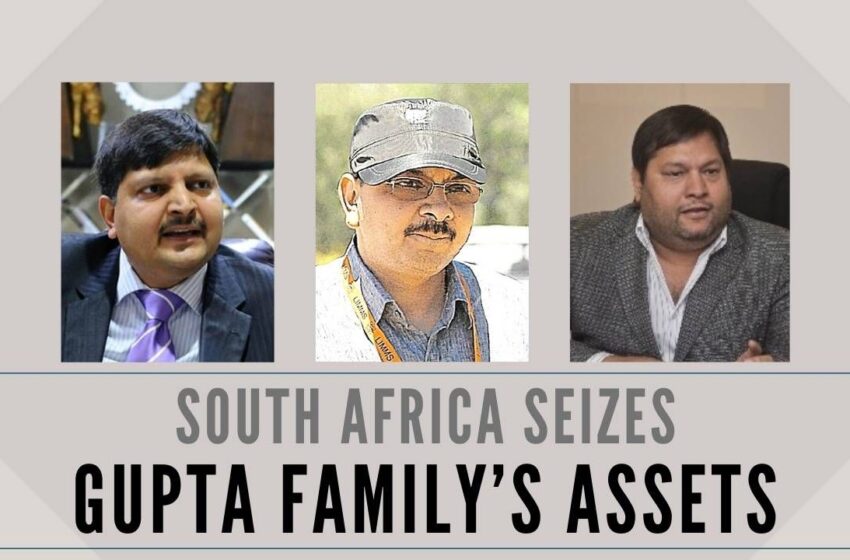The Gupta family: Who they are and why they fled South Africa

Gupta Family
Once seen as business titans in South Africa, the Gupta brothers—Ajay, Atul, and Rajesh—now symbolize one of the country’s most notorious corruption scandals. Their departure from South Africa amid state capture investigations left behind not just empty mansions, but a legacy of political betrayal and national outrage.
Who Are the Gupta Family?
The Gupta family hails from Saharanpur, India, and rose to prominence in South Africa after arriving in the early 1990s. Through their conglomerate, Oakbay Investments, they ventured into sectors such as mining, energy, media, and technology.
They became influential figures during the presidency of Jacob Zuma, building close relationships with key government officials. This connection eventually led to what South Africans now know as “state capture.”
What Is State Capture and How Were They Involved?
“State capture” refers to the Guptas’ manipulation of government entities to serve their business interests. Investigations, including those by the Zondo Commission, showed that the Guptas influenced ministerial appointments, secured billion-rand contracts from state-owned enterprises (SOEs) like Eskom, Transnet, and Denel, and redirected state resources for personal gain.
Their media empire, including ANN7 and The New Age, was also accused of pushing political propaganda to protect their interests.
Why Did the Guptas Flee South Africa?
As the political tide turned with Jacob Zuma’s resignation in 2018 and mounting pressure from public and legal institutions, the Guptas began offloading assets and fled the country, most likely settling in Dubai.
They left behind several lavish properties, many of which have been seized or auctioned. However, despite a recent high-profile auction, only one multimillion-rand home sold, and at a significant 40% discount.
READ ALSO
Gupta Mansions fail to attract bidders….here is why
Senzo Meyiwa trial: State closes case, defense eyes discharge application
Legal Action and Extradition Efforts
Following the Zondo Commission’s recommendations, South Africa’s National Prosecuting Authority (NPA) issued arrest warrants and filed extradition requests. Interpol Red Notices were also issued against the brothers.
However, a UAE court recently denied South Africa’s extradition request citing procedural missteps, a move that drew public outrage and prompted diplomatic efforts to relaunch the process.
The Fallout and National Impact
The Guptas’ alleged corruption and abuse of political influence have had long-lasting consequences on South Africa’s economy and public trust. Their saga became the defining symbol of corruption and elite impunity in post-apartheid South Africa.
Today, while the country continues its legal fight to bring the Guptas to justice, their departure remains a painful reminder of the cost of political capture and institutional failure.
The Gupta story is not just about wealth and escape. It’s a cautionary tale of how unchecked power can destabilize democratic institutions. As South Africa works toward accountability, the nation’s eyes remain fixed on recovering stolen billions and restoring integrity to its governance.

